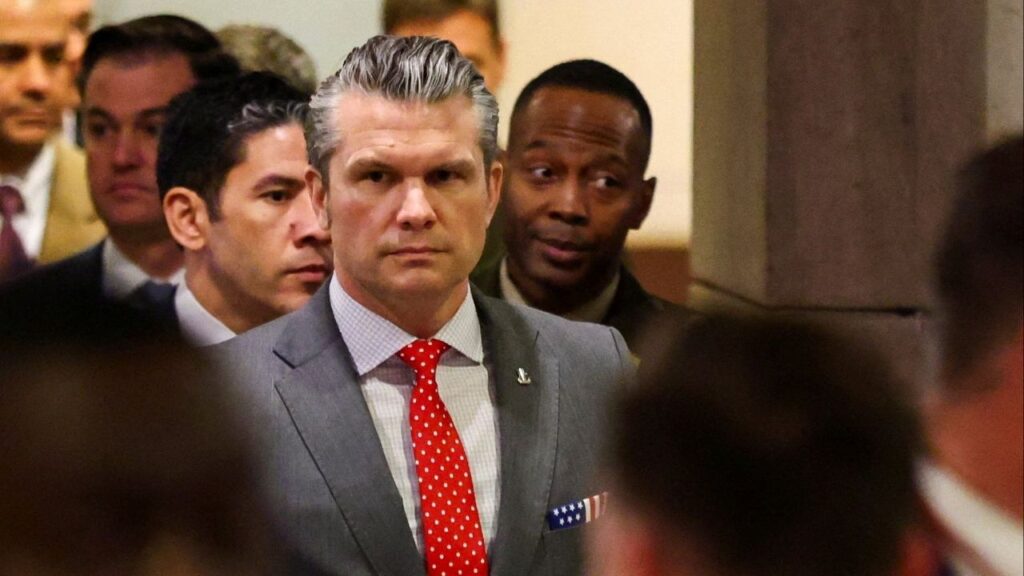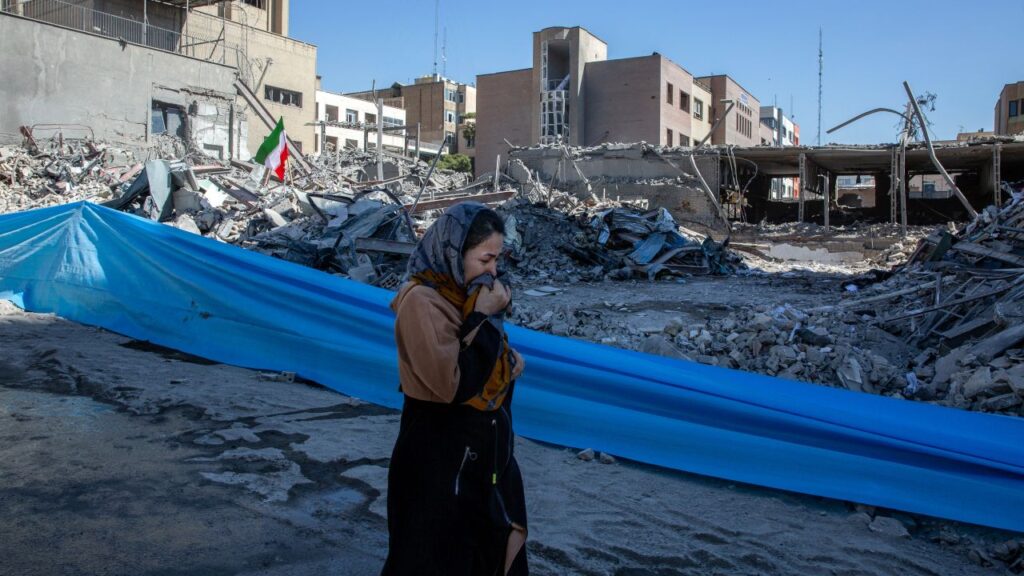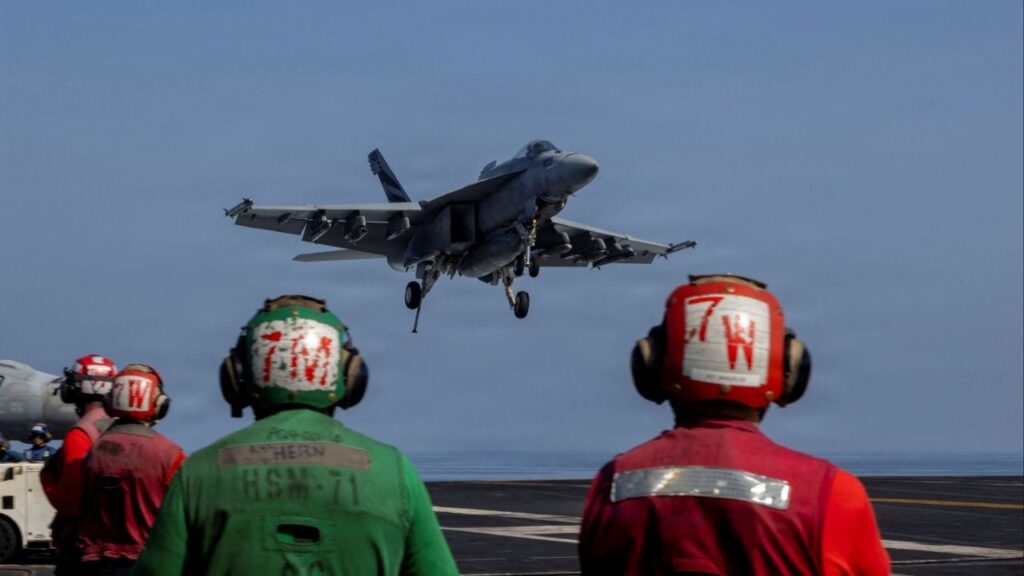Share
President Donald Trump’s announcement March 22 that John Bolton would become the new national security adviser took the policy world – and Bolton – by surprise.
Bolton’s hawkish views are well known. During his run as a Fox News commentator, he advocated for preemptively bombing North Korea and at other times called for regime change in Iran.

Opinion
Steven Feldstein
Throughout his tenure, he had a testy relationship with then-Secretary of State Condoleezza Rice and many others at the State Department. After his appointment expired, I recall that most of his colleagues breathed a sigh of relief upon his exit.
Now as a scholar of foreign policy and international relations, I find that Bolton’s promotion to one of the most important jobs in the Trump administration raises critical questions: What is Bolton’s worldview? And is his aggressive posturing on Iran and North Korea hyperbole, or do they represent a real template for new policies? If Bolton’s policy decisions start to match his rhetoric, then the possibility of war may become very real.
Bolton’s Hard-line Perspective
U.S. foreign policy experts tends to fall into three camps: realist, liberalist and idealist. Realists view international relations as a competition for power among self-interested states. Liberalists contend that economic integration between nations, international institutions and democracy can overcome selfish state behavior. Idealists believe that international politics are shaped by collective ideas, values and principles.
Bolton nominally falls into the realist camp, but he inhabits the extreme end of it – he is a hard-liner and a hawk. He reflexively distrusts diplomacy to settle disputes. He believes that force and coercion are preferable means to advance U.S. interests. Bolton views international relations as a series of “nasty, brutish and short” struggles where military force is the deciding factor.
As history shows, Saddam did not possess biological or chemical weapons, but the United States went to war against Iraq anyway. Bolton’s more recent saber-rattling against Iran echoes the past. He has called for Trump to “tear up” the Iran nuclear agreement, and to use bombs and missiles to accomplish U.S. security objectives. As Bolton intones: “Time is terribly short, but a strike can still succeed.”
What Does Bolton want?
Bolton believes that force alone will ensure continued U.S. dominance in the international system. He sees diplomacy and negotiations, particularly through the U.N., as a tactic for weak states to tie the hands of stronger states. He has repeatedly claimed that negotiations, such as over North Korea’s nuclear program, are a waste of time, and that treaties are “essentially only political documents.”
At his core, I believe Bolton is concerned with how to maintain U.S. primacy in the face of relative decline. He recognizes the likelihood that the Chinese economy will soon become the largest in the world, and that economic power is a key component of military strength. Therefore, Bolton maintains that the best way to secure American power is to confront revisionist states – countries such as North Korea and Iran which seek to overturn the status quo order – through military strength, and to knock back challenges from potential peer competitors, like China.
Unlike a classic realpolitik strategist like Henry Kissinger, diplomatic subtlety is not part of Bolton’s playbook. If collateral damage accrues, say millions of civilian casualties from a conflict on the Korean peninsula, I’d expect Bolton would likely say that is the cost of doing business.
How Will Bolton Manage the Bureaucracy?
Many commentators have extolled Bolton’s ability to co-opt the bureaucracy in support of his objectives. That case may be overstated.

John Bolton had a testy relationship with then-Secretary of State Condoleezza Rice and many others at the State Department, writes Steven Feldstein.
While working as a diplomat in the U.N., he notably feuded with his counterparts, particularly Secretary General Kofi Annan. Other countries blithely ignored – if not ridiculed – his agenda, leaving him with a sparse list of accomplishments. Said one Western ambassador: “Instinctively, he’s a bully. He has succeeded in putting almost everyone’s back up, even among America’s closest allies.”
In fact, Bolton’s most lasting U.N. legacy may have been his famous assertion: “The Secretariat building in New York has 38 stories. If it lost 10 stories today, it wouldn’t make a bit of difference.”
Bolton’s State Department colleagues also found him insufferable, according to The Washington Post. He routinely conflicted with Secretary Rice, and as he approached the end of his tenure, his polarizing attitude had shorn him of allies. Rather than wield unrestrained influence, internal opponents often stymied his priorities. As someone notoriously difficult to work with – including serious allegations of workplace abuse – Bolton will may encounter substantial friction once he gets in place as national security adviser.
Drumbeat of War?
Some experts argue that under Bolton’s leadership, going to war is not inevitable, but several factors give pause. Many senior diplomats and military leaders – the checks and balances – have left the administration. There are simply fewer experienced people left in the room to challenge Bolton’s ideas.
Steven Feldstein, Frank and Bethine Church Chair of Public Affairs & Associate Professor, School of Public Service, Boise State University
This article was originally published on The Conversation. Read the original article.




















